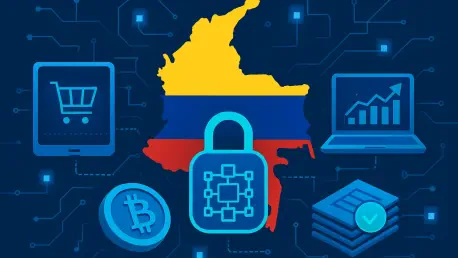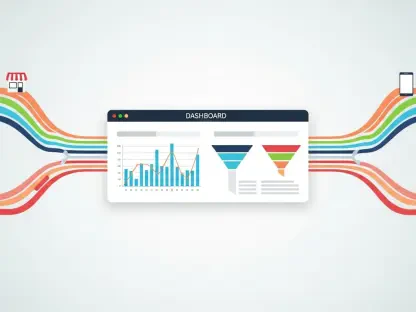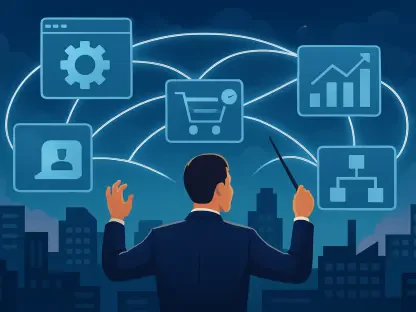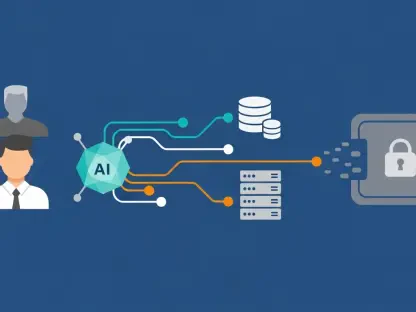In a world where global trade is increasingly defined by speed and security, a significant transformation is unfolding in Latin America, with Colombia emerging as a frontrunner in embracing cutting-edge digital solutions. The country’s customs authority has recently approved the use of an electronic Bill of Lading (eBL) developed by IQAX, marking a historic step toward modernizing cross-border trade. This shift away from traditional paper-based systems to a blockchain-powered alternative promises to streamline processes, enhance security, and reduce operational risks. By adopting this technology, Colombia is not only addressing long-standing inefficiencies but also setting a precedent for the region. This development signals a broader movement toward digitalization in trade infrastructure, positioning the nation as a leader in a rapidly evolving landscape. The implications of this advancement extend beyond local borders, offering a glimpse into the future of global commerce where transparency and efficiency reign supreme.
Revolutionizing Trade with Blockchain Technology
The inefficiencies of traditional paper-based bills of lading have long plagued international trade, creating bottlenecks that frustrate stakeholders across the supply chain. Shippers, freight forwarders, banks, and customs officials often grapple with slow processing times and the constant threat of document tampering or loss. In Colombia, the introduction of IQAX’s eBL, supported by the Global Shipping Business Network (GSBN), addresses these challenges head-on. By leveraging blockchain technology, this digital solution creates an unalterable record of transactions, ensuring that documents cannot be falsified. Customs officials can now verify authenticity instantly through a QR code using the GSBN Doc Viewer App, slashing the time spent on manual checks. This not only minimizes the risk of fraud but also accelerates import clearance procedures, paving the way for a smoother, more reliable trade ecosystem in the region.
Beyond the immediate benefits of security and speed, the adoption of the eBL represents a paradigm shift in how trade documentation is managed. The technology eliminates the need for physical handoffs of paper documents, which often lead to delays and errors during transit. For Colombian businesses and international partners, this means fewer disruptions and a more predictable flow of goods. Additionally, the system fosters trust among parties by providing a transparent, tamper-proof ledger accessible to all authorized stakeholders. Banks and cargo owners gain a secure record of ownership, while logistics providers can operate with greater confidence in the accuracy of their documentation. This transformative approach is a clear signal that digital tools are no longer optional but essential for competing in a fast-paced global market. As Colombia implements this solution, the ripple effects are likely to inspire similar innovations across Latin America, driving a regional push toward paperless trade.
Driving Regional Progress Through Digitalization
Colombia’s pioneering move to integrate digital trade tools like the eBL is part of a larger trend sweeping through Latin America, where countries are increasingly recognizing the need to modernize trade infrastructure. The inefficiencies of manual processes have historically burdened customs authorities with cumbersome paperwork, often leading to costly delays at borders. By contrast, the blockchain-based system adopted in Colombia offers a glimpse of what a fully digital trade environment could look like. Industry leaders, such as George Guo, CEO of IQAX, have emphasized the solution’s ability to provide instant verification for customs, ensuring a seamless process for all involved. This advancement also alleviates the operational strain on financial institutions and cargo owners by replacing outdated methods with a secure, efficient alternative, setting a benchmark for others in the region to follow.
The collaborative efforts behind this innovation highlight the importance of interoperability in achieving a transparent trade system. Bertrand Chen, CEO of GSBN, has pointed out the immense potential of digital tools like the GSBN Document Viewer App to enhance efficiency across global supply chains. This technology not only reduces the administrative burden but also builds a foundation of trust through verifiable, real-time data. For Latin American nations looking to update their trade frameworks, Colombia’s success serves as a practical model of how digital solutions can address systemic challenges. The unified perspective among industry experts underscores a shared belief that embracing such advancements is critical for economic growth. As more countries in the region observe the tangible benefits of this system, the momentum for widespread adoption is expected to grow, potentially transforming the landscape of cross-border commerce over the coming years.
Paving the Way for a Paperless Future
Looking back, Colombia’s approval of IQAX’s electronic Bill of Lading stood as a landmark achievement in the journey toward digital trade in Latin America. This blockchain-driven solution tackled persistent issues of fraud and inefficiency that had long hindered traditional paper processes, offering a secure and streamlined alternative. The impact was evident in faster import clearances and reduced risks for stakeholders across the supply chain. As the nation took bold steps to integrate this technology, it laid the groundwork for a more interconnected trade ecosystem. Moving forward, the focus should shift to scaling such innovations across borders, encouraging other countries to adopt similar systems. Collaborative efforts among governments, technology providers, and industry players will be key to overcoming remaining barriers to paperless trade. By investing in interoperable platforms and fostering regional partnerships, Latin America can solidify its position as a hub of digital trade excellence, ensuring sustained progress in the years ahead.









